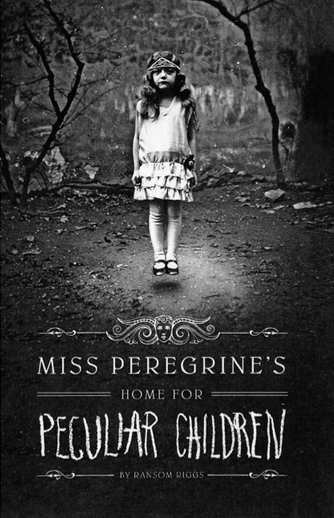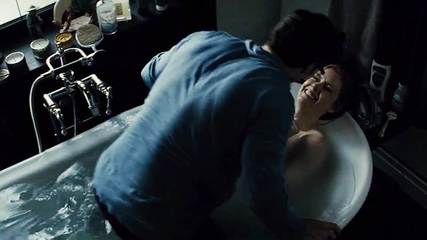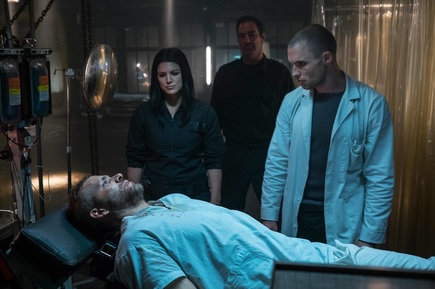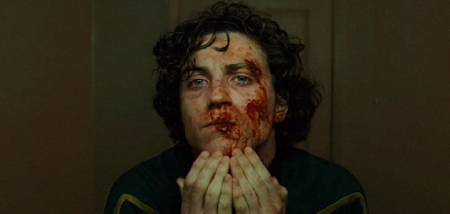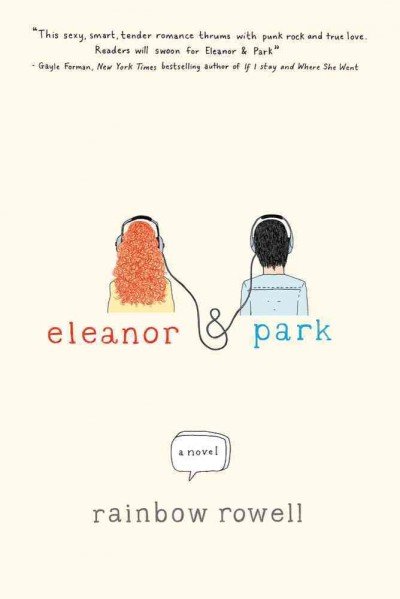Book Review:
Quirk Books, 2011
B
The Basics:
Jacob’s grandfather has always been full of fanciful tales about his youth. For much of his life, Jacob assumed them to be nothing more than that, but when he gets the chance to take a trip to the island where his grandfather weathered World War II as a child, he finds evidence that the magical children’s home of his grandfather’s stories is not only real, but still there.
The Downside:
The tone of the book isn’t well telegraphed by the cover, and as a result, enjoyment of the contents depends wildly on personal expectations and how fortunately tastes happen to align. Many reviews I’ve come across after reading it myself complain that the cover promises horror and that the text fails to deliver. I personally expected something fairly whimsical based on the title and was surprised (pleasantly, for my taste) by the more effectively disturbing moments within. Some readers might be disappointed by how much of the book is spent in the ordinary world before reaching the titular home for peculiar children, but as the ordinary world parts are the strongest, I won’t complain on that point either.
Less pleasant, whatever your tonal expectations and preferences, is the flatness of the inhabitants of the home once we meet them. Each is defined by a peculiar ability and a few broad strokes besides, at best. There’s also a dose of open sexism draped only in that sneaky veil of self-deprecation (“boys can’t be expected to be as smart and responsible as girls!”) that certain authors seem to imagine is charming.
The Upside:
Where the peculiar children themselves fall short, the setup of Jacob’s ordinary life and family steal the show. Rather than cleanly vanishing into the background the moment the low fantasy elements arrive to whisk Jacob away to his destined escape, Jacob’s family of alienated generations of sad, unfulfilled people crumbles apart under its own uncomfortably real weight. Jacob is left by honest dysfunction rather than genre convention to decide alone how deep he means to plunge into the peculiar children’s unsettling world.
Exactly how unsettling does that world get? Well, here’s a spine-chiller of a concept: Bodies can’t age at the home for peculiar children. They also can’t decompose. This means that one of the children who died by accident at some point in their eternal seclusion is still lying in one of the home’s bedrooms, perpetually as fresh as the day it happened. Every so often, as a treat to the others, the one child whose peculiarity involves power over life and death saves up enough still-beating hearts from dead animals to rev up the dead friend’s corpse into a half-alive zombie state for a brief chat.
A strange juxtaposition with the nearly middle grade vibe that sometimes stems from the prepubescent attitudes and fairytale-like simplicity of the peculiar children? Yes, very. But genuinely creepy on the teens-and-up horror level that most of the book seems to aim for? Oh yes. The creep factor is both real and memorable with a particular vintage flavor, enhanced by the real antique photographs around which many of the story’s gags are written.
Agree? Disagree? Comments are always welcome! Or keep up with my fictional musings by joining me on Facebook, Pinterest, Twitter, or by signing up for email updates in the panel on the right!
